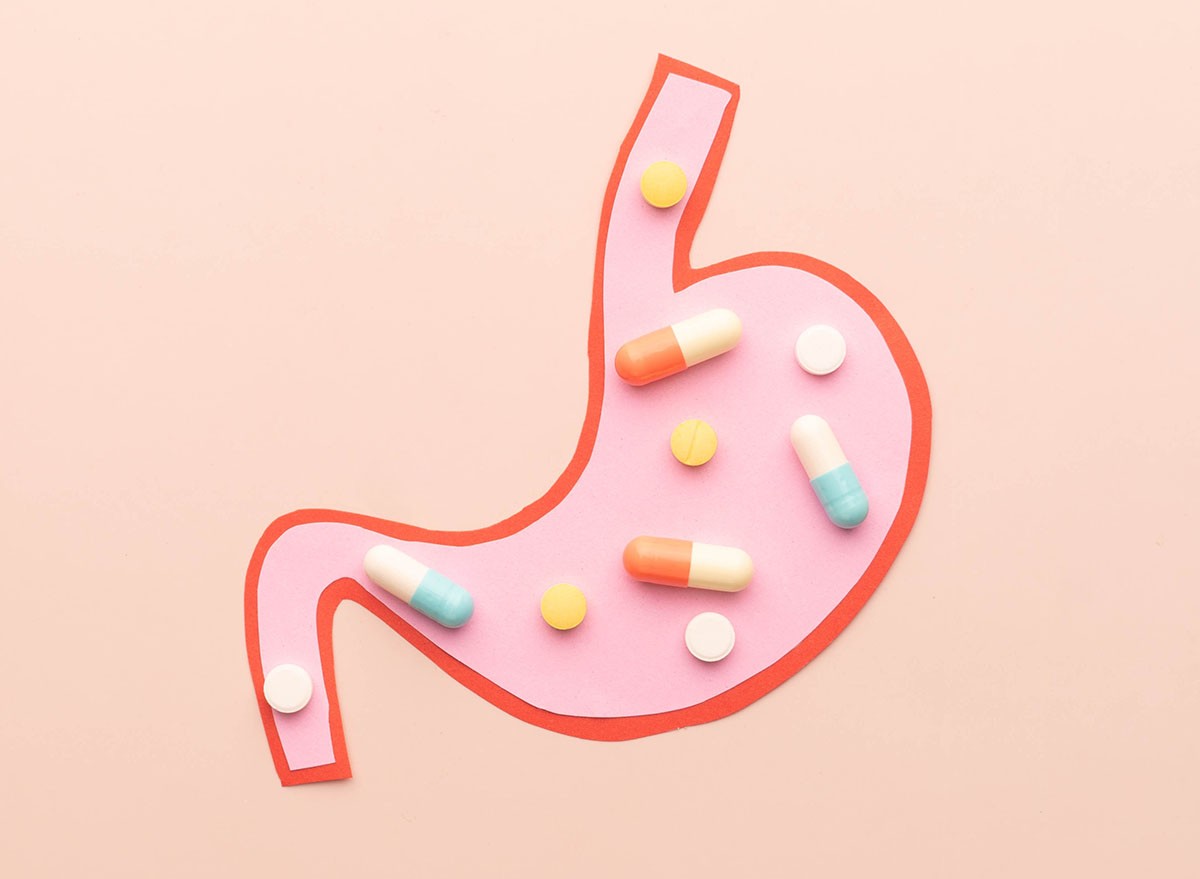Doctors Urge Caution With This Common Over-the-Counter Supplement

When it comes to over-the-counter supplements, doctors urge caution—it’s buyer, beware. “There’s an obsession in our culture with taking over-the-counter things to stay well, be well, feel well. Every condition or symptom has a pill,” Robert J. Fontana, MD, a hepatologist and medical director of the Liver Transplant Program at the University of Michigan Health System, tells Michigan Medicine. “There’s huge marketing that goes on around this. I don’t advise my patients to take any over-the-counter product willy-nilly. These products are medically unproven and carry potential risk since the manufacturers are not required to demonstrate efficacy or safety in patients prior to marketing them.” Here is a common over-the-counter supplement that can cause serious harm to your health, doctors say.
RELATED: OTC Pain Pills Are Being Recalled.
Proton-Pump Inhibitors

Long-term use of common heartburn medications are linked to an increased risk of dementia, heart attack, and chronic kidney disease, experts warn. “You may think you’re reaching for heartburn relief when you take a proton-pump inhibitor (PPI), a type of medication that helps block the production of stomach acid,” says Harvard Health. “PPIs are effective, and some—such as lansoprazole (Prevacid) and omeprazole (Prilosec)—are readily available over the counter. Others, such as pantoprazole (Protonix), are frequently prescribed for long-term use. But PPIs may have risks when taken over a long period.”
Heartburn Medication and Heart Attack

Researchers at Stanford University School of Medicine discovered a link between heartburn drugs and an increased risk of heart attack. The data-mining study which examined 3 million patient records showed a 20 percent increase in heart attack-risk for all adult PPI users. “These drugs may not be as safe as we think,” said Nicholas Leeper, MD, the study’s senior author.
PPIs and Bone Fractures

Long-term use of PPIs is linked to bone fractures. “This is because long-term use can cause your body to absorb a lower amount of important nutrients, like vitamin B12, iron, calcium and magnesium,” Khoi Dinh Le, MD, tells Banner Health. “Although in many cases, a supplement can help correct nutrient deficiencies.”
Infection Risk

Long-term use of PPIs is also linked to an increased risk of pneumonia and C-diff diarrhea.”Many adults diagnosed with adult onset asthma often have GERD or heartburn that can be easily overlooked as a reason,” Dr. Le says. “This is because chronic reflux can lead to aspiration, where small amounts of acid and other stomach contents are accidentally inhaled into the lungs, causing chronic scarring and asthma-like symptoms. If the acid level of the stomach is reduced by medication to help with symptoms of heartburn, the natural bacteria-killing effect of this acid is reduced. This allows for bacteria to grow within the stomach and then become inhaled into the lungs during episodes of reflux, leading to infection of the lungs, better known as pneumonia.”
RELATED: Doctors Warn Against These OTC Supplements.
Heartburn Help

Diet and lifestyle changes can help with GERD, doctors say. “Short-term medication is definitely helpful when it comes to symptom relief, but usually this relief is temporary, and the symptoms usually return after stopping the medication,” Dr. Le says. “The general research consensus is that GERD is more prominent in those who are obese. However, dietary and lifestyle modifications, with the aim of losing weight in a healthy and long-lasting manner, can minimize or even eliminate reflux and heartburn.”
Taking PPIs For Longer Than Two Weeks

PPIs are not harmless and should be used for as short a time as possible, doctors warn. “PPIs sold over the counter should have a clearer warning about potential for significant health risks, as well as a clearer warning about the need to limit length of use, generally not to exceed 14 days,” Ziyad Al-Aly, MD, assistant professor of medicine at the School of Medicine, tells WashU Medicine. “People who feel the need to take over-the-counter PPIs longer than this need to see their doctors. A lot of people may be taking PPIs unnecessarily. These people may be exposed to potential harm when it is unlikely the drugs are benefiting their health. Our study suggests the need to avoid PPIs when not medically necessary. For those who have a medical need, PPI use should be limited to the lowest effective dose and shortest duration possible.”